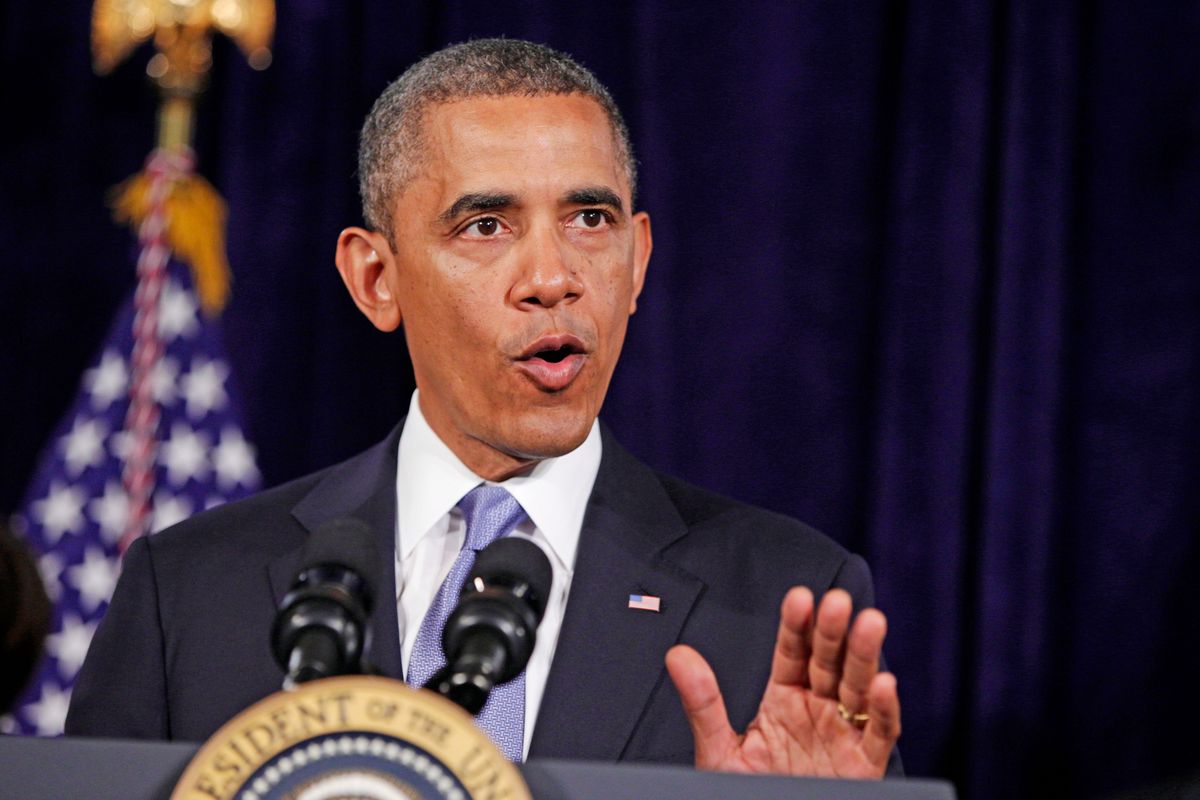 The surprise announcement from the Obama administration that it will delay for one year penalizing employers that do not offer health coverage to their workers is the latest capitulation by the White House to big businesses that want to shirk their responsibility to help pay for health insurance. But the decision leaves huge unanswered questions about whether health coverage for uninsured workers will also be denied.
The surprise announcement from the Obama administration that it will delay for one year penalizing employers that do not offer health coverage to their workers is the latest capitulation by the White House to big businesses that want to shirk their responsibility to help pay for health insurance. But the decision leaves huge unanswered questions about whether health coverage for uninsured workers will also be denied.
Yesterday, the Treasury issued a notice delaying for one year, until 2015, the requirement that employers of more than 50 full-time employees (3 percent of all employers) report on whether they offer health coverage to their employees. The Affordable Care Act requires that these employers pay penalties when they they do not offer qualified coverage or when their workers access coverage through the new health care exchanges. The Treasury’s notice does not change the legal requirement that employers provide coverage, but it effectively negates enforcement of that requirement. The delay comes even though the Treasury has had more than three years to prepare to implement the law and an entire new industry has emerged advising employers on how to comply.
The notice, full of sympathy for employers who have to comply with the reporting requirements, totally ignores the implications for employees. What will happen to workers for companies that do not offer health insurance or that offer coverage that does not meet the law’s minimum requirements? These are huge questions, and it is remarkable that the Obama administration would publish the Treasury Department notice without addressing them.
Under the Affordable Care Act, workers who are offered acceptable coverage at work are not eligible to access health insurance through the new health insurance marketplaces (“exchanges”), which offer income-based subsidies to purchase health coverage. These workers must purchase the employer coverage or pay a fine.
So what happens under the Treasury Department rule if the marketplaces have no way to determine whether a worker has been offered qualified coverage? Would the uninsured worker be able to get subsidized coverage? It would be cruel to make employees, most of whom work for low wages, wait another year to get health insurance because the administration is giving big employers a break on reporting. If the administration is going to give employers a break, it should not do so at the expense of millions of uninsured or underinsured workers who have been looking forward to having health insurance available to them on January 1, 2014.
Another question is whether the penalty for not being insured, the individual mandate, would apply to an uninsured employee of a business that does not have to report on whether it is offering coverage and is avoiding the employer mandate penalty. What greater irony than to fine an employee because the Obama administration is eliminating fines for large employers?
The Obama administration’s decision continues a history, stemming from the business-friendly version of the Affordable Care Act that emerged from Max Baucus’s Senate Finance Committee, of bowing to the demands of big businesses to avoid responsibility for providing affordable coverage to their employees. The Affordable Care Act's only requirement for employers of 50 or more full-time workers is that they offer employers high-deductible plans, which require employees to pay a big chunk of their incomes for the coverage. If employers meet these skimpy provisions, they can avoid paying penalties and their workers are locked into the lousy coverage or required to pay a fine for the privilege of being uninsured. It is not clear how many employers will take this low-road route, but the history of the big low-wage employers – think WalMart and McDonald's – is not encouraging.
What matters now is that the White House treat employees with the same level of concern it has shown big business. To do that, the administration should make it clear that workers who state that they are not offered coverage by their employer, or that the coverage costs more than they can afford or has limited benefits, should be eligible to receive income-based subsidies in the new marketplaces. Simple justice, and the primary goal of the Affordable Care Act of guaranteeing affordable health coverage to all Americans, requires nothing less.



Shares